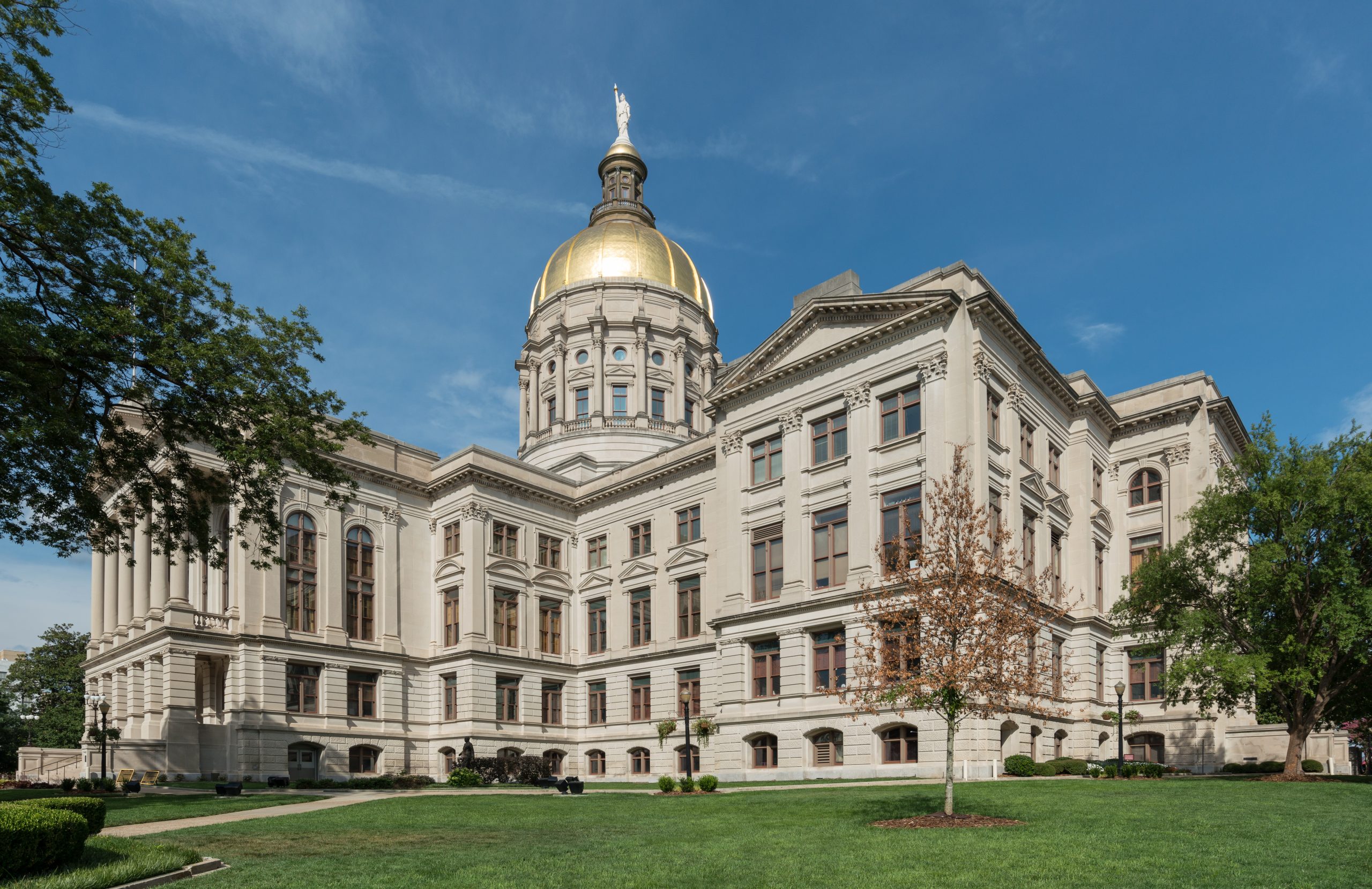On Tuesday, February 22, the Georgia House of Representatives reconvened for a short albeit productive seventh week of the 2022 legislative session. This week, we hunkered down and made the most of two session days and one full committee work day. As usual, we debated and voted on an array of legislation in the House Chamber, and by the end of the week, my colleagues and I reached Legislative Day 20, which means we are at the halfway point of the session.
Currently, many school systems utilize virtual learning opportunities, and the number of students with school-issued laptops or tablet devices has dramatically increased so children can learn from home. To keep up with this evolving learning environment, the House passed House Bill 1217, or the Student Technology Protection Act, to promote the safe and appropriate use of school-issued technology, whether students are using these devices in the classroom or while learning from home. The Student Technology Protection Act would require each local board of education and charter school governing body to adopt an acceptable-use policy this year that could better prevent and prohibit any school computer or network from accessing obscene materials, child pornography or material that is deemed harmful to minors. Each school system would also take necessary steps to implement and enforce its new acceptable-use policy, as well as update school technology to better block or filter access to these explicit materials online. The Georgia Department of Education would provide local school systems with information about contracted providers of technology protection measures, provide guidance and technical assistance to schools and develop guidelines for training school personnel. Finally, if the State Board of Education finds that a school has not followed its acceptable-use policy, the board could withhold a portion of state funding allotted for that school. This legislation would work in accordance with the federal Children’s Internet Protection Act (CIPA). However, CIPA has not been updated since 2011, and HB 1217 would allow our state to update Georgia’s laws to address the use of more modern technology in schools. As technology continues to evolve quickly, this bill would ensure that Georgia’s public schools have these policies in place and are equipped with the resources they need to protect children from harmful online content.
The House also passed the following bills on the House floor this week:
- House Bill 500, which would allow a second round of funding of $100 million to the Georgia Agribusiness and Rural Jobs Act program for capital investments, increase the program’s application fee from $5,000 to $25,000, establish an annual maintenance fee of $7,500 for all rural funds and update the program’s reporting requirements;
- House Bill 1008, which would amend the operations and composition of the Georgia Higher Education Savings Plan (GHSP) board of directors, dissolve the Georgia Achieving a Better Life Experience program and transfer this program’s authority and trust to the GHSP, as well as remove the board of directors’ authority to require and collect fees to cover administrative costs and impose withdrawal penalties;
- House Bill 1146, which would require that vehicles driven by officers enforcing traffic laws be equipped with flashing blue lights and would allow the Georgia State Patrol to have vehicles without such exterior-mounted roof lights;
- House Bill 1148, which would prohibit individuals from bringing a cervid carcass, such as a deer carcass, from outside Georgia into the state if any part of the carcass contains a portion of the nervous system, and this bill would provide exceptions for antlers, skulls, skull plates, teeth or jawbones that have soft tissue attached;
- House Bill 1215, which would allow students to withdraw from their local school and enroll in a charter school with available classroom space without penalty and would require local education boards to adopt a universal, streamlined transfer process, as well as clarify how local revenue allocations would be collected and calculated for charter schools;
- House Bill 1233, which would revise the effective date of rules and regulations promulgated by the Georgia Board of Natural Resources to January 1, 2022, consolidate various species of black bass, update requirements for shotguns used for hunting migratory game birds and create the umbrella term “migratory game birds;”
- House Bill 1320, which would update the state’s definition of “Internal Revenue Code” to include the provisions of the federal Infrastructure Investment and Jobs Act, such as changing which bonds qualify as tax-exempt bond financing, extending interest-rate smoothing for defined benefit plans and expanding certain non-taxable contributions for government water or sewage disposal services;
Heading into the second half of session, the next couple of weeks will certainly be some of our most demanding as we prepare for the Crossover Day deadline, which is the last day a bill can pass out of one chamber and still be eligible to be signed into law this year. There are still many more important bills that will be taken up before Crossover Day, including the Fiscal Year 2023 budget. I hope to hear from you soon about legislation that is still up for consideration this session. You can reach my Capitol office at 404-656-0325 or you can email me at @house.ga.gov.
As always, thank you for allowing me to serve as your state representative.

